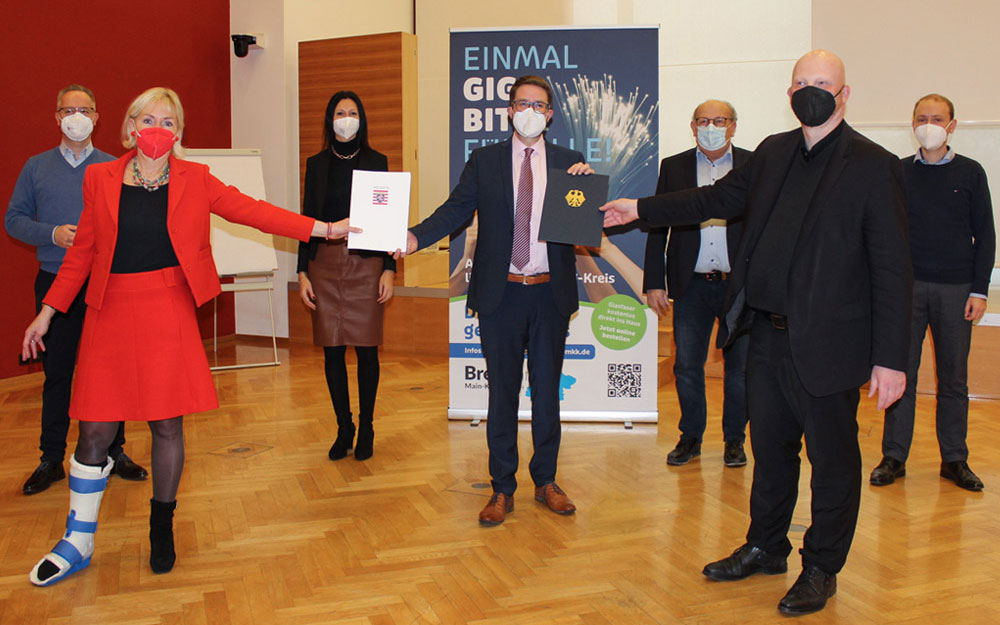The Main-Kinzig district was an early adopter of subsidized broadband expansion in order to provide its citizens, companies and institutions throughout the district with a high-performance digital infrastructure. In 2016, it was one of the first municipalities to be active in the federal broadband funding program – now, as one of the first applicants in the new Grey-Spot Program of the Federal Ministry for Digital and Transport (BMDV), it has been given the green light for the further district-wide gigabit expansion of over 51,000 previously underserved connections.
At the official handover ceremony in Gelnhausen with Digital Minister Prof. Dr. Sinemus, Tim Brauckmüller from the project sponsor aconium presented the District Administrator of the Main-Kinzig district, Thorsten Stolz, with a funding decision amounting to 100 million euros. This will enable over 45,700 previously underserved households, more than 5,260 companies, 16 schools and 103 socio-economic focus areas to be provided with an efficient and sustainable digital infrastructure. These socio-economic focus areas are a new focus of the gray-spot funding. They include private and public facilities that significantly shape and drive social and economic development, for example schools, local authority buildings, universities and research centers, hospitals and stadiums as well as transport hubs such as train stations, ports and airports, certain companies and farms.
Together and self-determined into the future
Large-scale and future-oriented expansion projects like this have the potential to enable the development of an entire region. This is why the federal government and the state of Hesse are supporting the local authorities’ investment with funding: half of the expansion costs of 200 million euros are being borne by the federal government, while the state of Hesse – represented at the ceremony by Digital Minister Prof. Dr. Kristina Sinemus – is contributing 80 million euros. The municipalities of the Main-Kinzig district themselves are investing 20 million euros.
The district-owned Breitband Main-Kinzig GmbH builds the passive network infrastructure, which is then leased to and operated by the network operator. The ongoing income from the lease guarantees the refinancing of the investment costs.
Citizens, companies and institutions will thus receive a high-performance fiber-optic network from municipal sources – precisely where a purely private-sector expansion would probably not have been expected in the next three years.

